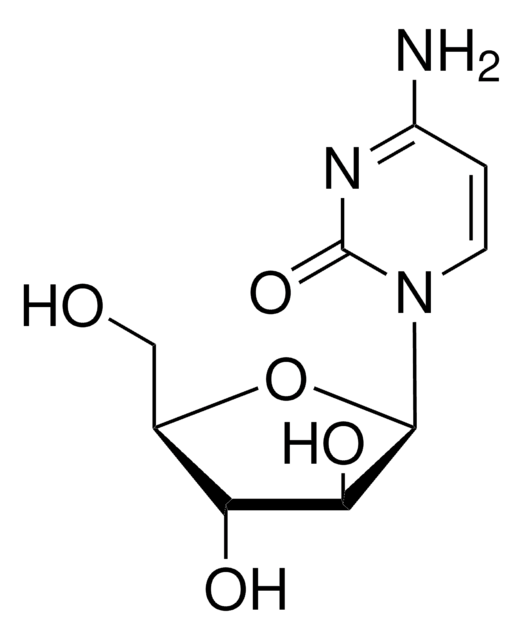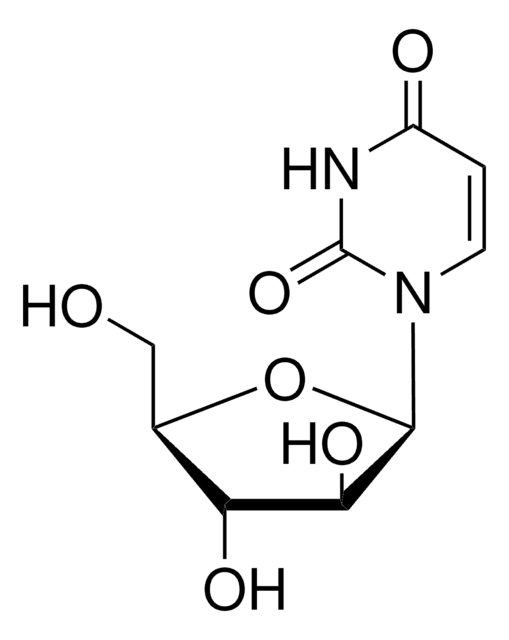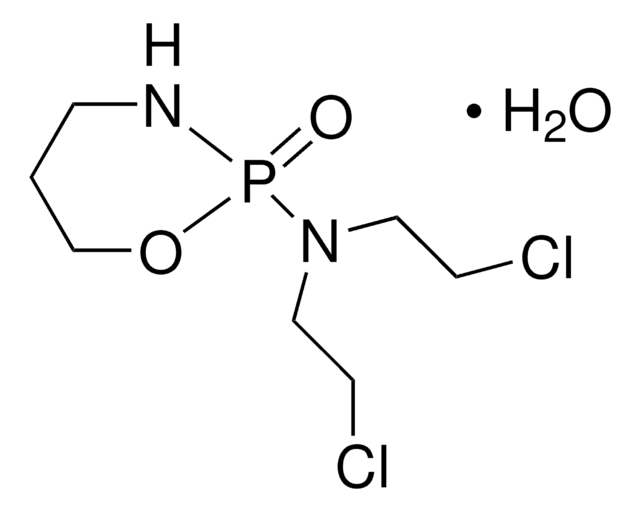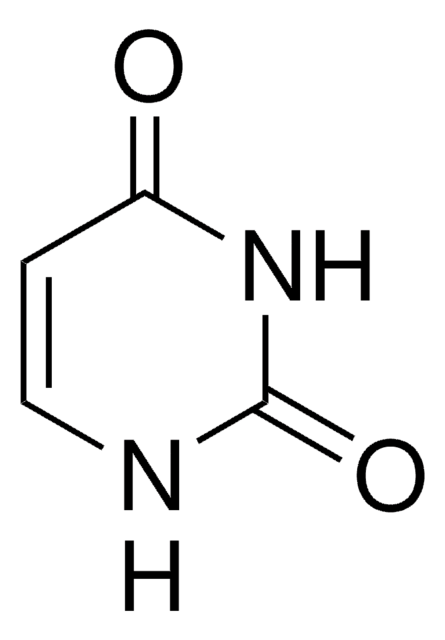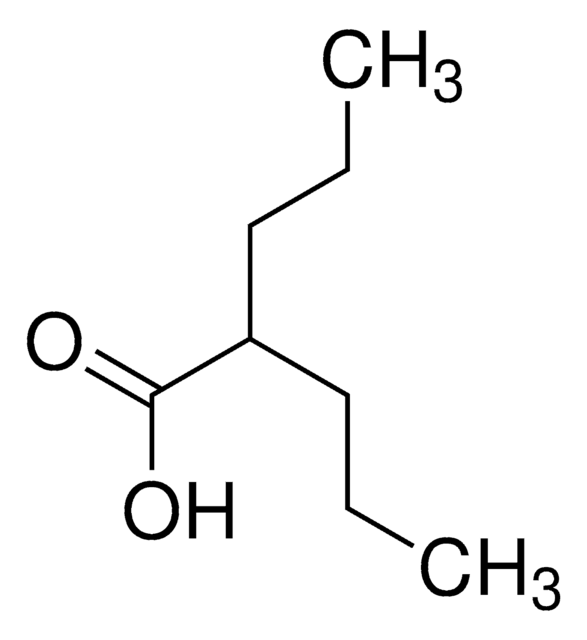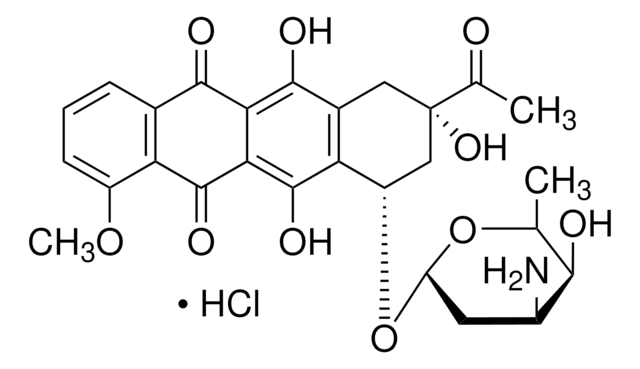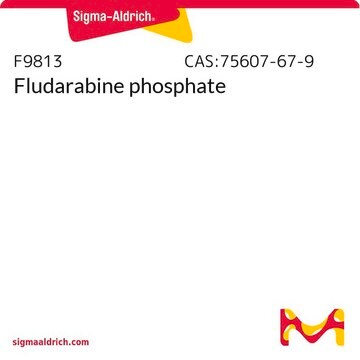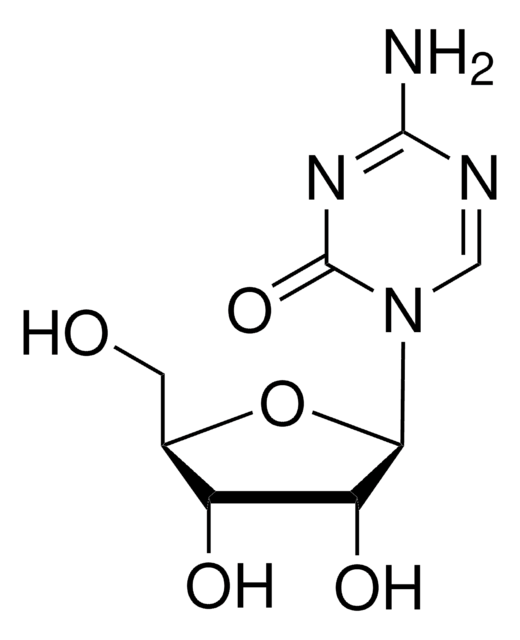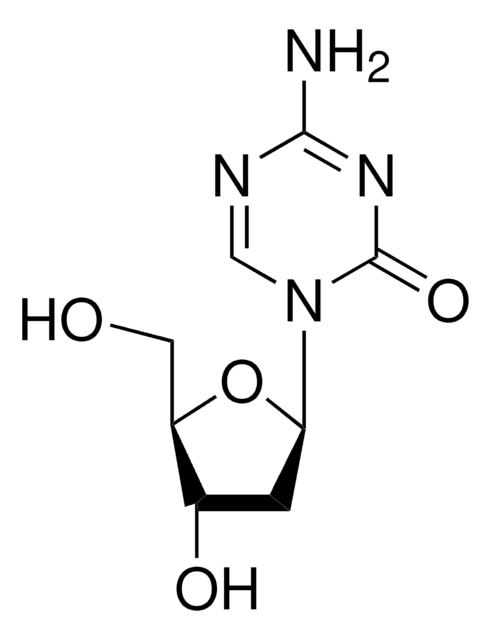1162002
USP
Cytarabine
United States Pharmacopeia (USP) Reference Standard
Synonym(s):
Cytosine β-D-arabinofuranoside, (β-D-Arabinofuranosyl)cytosine, Ara-C, Arabinocytidine, Arabinosylcytosine, Cytarabine, Cytosine arabinoside
About This Item
Recommended Products
grade
pharmaceutical primary standard
API family
cytarabine
manufacturer/tradename
USP
application(s)
pharmaceutical (small molecule)
format
neat
storage temp.
2-8°C
SMILES string
NC1=NC(=O)N(C=C1)[C@@H]2O[C@H](CO)[C@@H](O)[C@@H]2O
InChI
1S/C9H13N3O5/c10-5-1-2-12(9(16)11-5)8-7(15)6(14)4(3-13)17-8/h1-2,4,6-8,13-15H,3H2,(H2,10,11,16)/t4-,6-,7+,8-/m1/s1
InChI key
UHDGCWIWMRVCDJ-CCXZUQQUSA-N
Gene Information
human ... POLA1(5422) , POLA2(23649) , POLD1(5424) , POLD2(5425) , POLD3(10714) , POLD4(57804) , POLE(5426) , POLE2(5427) , POLE3(54107) , PRIM1(5557) , PRIM2(5558)
Looking for similar products? Visit Product Comparison Guide
General description
Application
- Cytarabine for Injection
Biochem/physiol Actions
Analysis Note
Other Notes
related product
Signal Word
Warning
Hazard Statements
Precautionary Statements
Hazard Classifications
Repr. 2 - Skin Sens. 1
Storage Class Code
11 - Combustible Solids
WGK
WGK 3
Flash Point(F)
Not applicable
Flash Point(C)
Not applicable
Choose from one of the most recent versions:
Certificates of Analysis (COA)
It looks like we've run into a problem, but you can still download Certificates of Analysis from our Documents section.
If you need assistance, please contact Customer Support.
Already Own This Product?
Find documentation for the products that you have recently purchased in the Document Library.
Customers Also Viewed
Our team of scientists has experience in all areas of research including Life Science, Material Science, Chemical Synthesis, Chromatography, Analytical and many others.
Contact Technical Service